
Branko Čečen speaks at the Culture and Information Committee meeting
“The cynical majority shall vote that the freedom of expression is absolute, and this will be a fact referenced by the entire state apparatus in Serbia. They will not refer to the actual facts, left to become increasingly scarier until nobody deals with them, like an infectious disease in an irrelevant village”, writes Branko Čečen, Director of the Research Journalism Center of Serbia, for Cenzolovka on a Parliament discussion on media freedom.
The only benefit from the Culture and Information Committee parliamentary meeting held on the topic of media censorship last Thursday that I can see is quite personal: I am fairly disappointed with myself. There are no social benefits. Most likely that some harm, relatively small, has been done in the context of Serbian media. The topic of the meeting was “Application of Article 4 of the Public Information and Media Law” (see the article of the law at the end of the text).
Politicians use the media for their interests, competing who has more of their “own” media and journalists, aiming to draw the voters to their side. Journalists have mainly dealt with their own behinds in that gutter, since the issue of what one will serve one’s children to eat the day after tomorrow has more priority than the freedom of expression, therewith that some consider their power and financial standing to be more important than the freedom.
It all started with the Chairperson Vesna Marjanović (the opposition) having to declare a recess until Members of Parliament who are at the same time members of the Committee agree on the time for addressing, whether it should be 10 or 15 minutes, for which they spent one hour of our time. Satisfied how well this went, the MP Saša Mirković (SNS) said in his opening statement that “we have all the time in the world” for discussion, but first the MPs, both the Committee members and those who decided to attend, and then the rest of us.
In the following two hours, which also need to be deducted from “all the time in the world”, MPs dived into their daily jobs. Thus the classical parliamentary bickering started: “Reply”, “As per the Rules of Procedure”, “Pursuant to which article”, “Pursuant to the following Article”, “You were censoring when you were in power”, “You are censoring now”, “What happened with “Utisak nedelje” (Impression of the Week)?”, “And as if you haven’t cancelled shows, here is the journalist to confirm”…
It even got messy. The editor of “Informer”, Dragan Vučićević, who was sitting only a few lines in front of me, took a dig at the MP Zoran Živković (whom he had held on the front page for about three days of the previous week in an extremely derogatory context) who was waiting to go out to the booth. When the MP did not react, he added a few more remarks, like the ones one could hear in a bar, to the excitement of the MP from SNS who was sitting next to him. Živković just barely turned to the editor, looked at him from the side with his eyelids half down over his light blue eyes and said only a few words: “You dirty bastard”. Oh, all hell broke loose… Oh, how embarrassed I felt.
These people know almost nothing of journalism or the media. That is not even important to them, but they are certain that the Parliament membership has given them the right to say some amazing inaccuracies, selectively manipulating with the little knowledge they have, and that this should be considered as something as important as the Parliament in which it is being said.
When this parliamentary “censored – uncensored – violated rules of procedure – accusation – insult – accusation – insult” bickering finally ended, apart from other bad impressions, all that I could think of was – these people knew almost nothing of journalism or the media. That was not even important to them, but they were certain that the Parliament membership had given them the right to say some amazing inaccuracies, to selectively manipulate with the little knowledge they had and that this should be considered as something as important as the Parliament in which it was said. If I were a Committee member for something, I would learn at least the basics of it, but from a book, not from an “extensive experience with the media”.
Then the guests asked for the floor. Representatives of journalist associations and unions talked about journalism in general. Then the Pandora’s box of individual problems of journalists and certain media got opened. Some even held brief lectures on journalism.
While one editor was saying some elementary wrong things of our profession, hopefully out of ignorance, the feeing was as if the lecture on criminal law was being held by an experienced criminal whose authority lied in the fact that he broke laws on a daily basis and he was yet out of prison. One editor said with a meaningful facial expression how she had made sure that some informative contents “show the other side as well”, although the third neutral side was added to this concept about 40 years ago. About 30 years ago a modern rule was introduced stating that decent reporting implies giving media space to all relevant parties, which were never only two, not even in an ordinary car crash.
The performance of Ištvan Kaić was a memorable experience. He talked about his case in detail, one text after another, one problem after another. When the chairperson said he had only 15 seconds left, he looked at her long and quietly. No, he was not angry. He accepted it as a depressed man would accept a rain at a bad time. There, there… he had several other problems of his own to state, but since there was no time, he would just briefly go over them… So he continued for at least five minutes, all the time quite deeply assured that the Parliament was there precisely for this.
With honorable exceptions, everybody was dealing with – themselves.
What had actually happened? Well, precisely what has been going on with the media in Serbian society.
1. Parties brought in “their own” journalists, or at least those whose opinion they feel close to their position.
2. Prior to addressing of journalists, members of Parliament used the topic for parliamentary bickering about a single topic: is the freedom of expression, which we all simply call “censorship”, endangered in Serbia, or not. Essentially, these were easily and superficially gained political points beyond my full comprehension.
3. Then the journalists (and those who were not in direct agreement with MPs) presented “their case” (again with honorable exceptions such as, for example, Slobodan Georgijev from BIRN).
4. Then the conclusion was reached and passed by voting of the Committee members, where the article of the law for which we gathered was repeated in a more general way, with only one specific matter – the Committee undertook to hold a “public hearing” on the freedom of expression.
Therefore, what happened was exactly what had been happening in the society – politicians used the media for their interests, competing who has more of their “own” media and journalists, aimed to draw the voters to their side. Journalists have mainly dealt with their own behinds in that gutter, since the issue of what one will serve one’s children to eat the day after tomorrow has more priority than the freedom of expression, therewith that some consider their power and financial standing to be more important than the freedom.
Finally, the Committee reached conclusions differing from the existing law only by announcement of a hearing. We could have only scheduled the hearing. It would hurt less, both the participants and the taxpayers.
And if this group says that there is no problem – then there is no problem. If one side calls for more of its “own” journalists, then the TV will show that there is no problem, and then – there will still be no problem.
Before I write what would any group of mature persons with a problem and a wish to at least try and resolve it do instead of all this, it must be very clearly said: it is completely incomprehensible that one such esteemed and expensive mechanism as the National Assembly even calls for any of its committees to discuss whether a problem exists or not. As if this country can throw away all scientists, researchers, agencies for public opinion polls, professors, institutes, administrations, statistical data and statisticians. The decision will anyway be made by a group of completely incompetent members of a parliamentary committee, whose authority is not even supported by the fact that somebody elected them, since not voters but the party elects a person to the Parliament. And if this group says that there is no problem – then there is no problem. If one side calls for more of “own” journalists, then the TV will show that there is no problem, and then – there will still be no problem.
In normal countries experts are asked for their opinion, studies, analyses, databases, brief opinions from unquestionable authorities are required. They determine where the responsibility and competence of the Parliament lies in all that. If there is any, the committee tries to see how to help in the entire situation with a recommendation, agreement on amendment of existing or adoption of a new law.
The only expert who found herself in the meeting, Professor Snježana Milivojević, came out to the booth, said that it was all pointless, even paradoxical and contradictory, that the vocabulary is street-like, that she had no intention to be a part of it and – went out.
As per items, serious people would do the following:
1. They would invite the greatest experts in the country – professors, researchers and unquestionable authorities in the profession. Much before this, they would request all information relevant for the topic at the disposal of the government and state institutions. They would engage parliamentary services to make a summary material, engage expert organizations to produce the missing data.
2. They would at least pretend, and those with true public interest at heart would be honest in it, to really try to understand the problem, hear each other, discuss the specific problem, its causes and consequences.
3. The invited guests would imply that work in the parliament is on the general, principle level, and convey what they witnessed and participated in the form of formulated and explained problems and offer solutions that could be started or created by the Parliament.
4. After this, the Committee would work on conclusions for months, through a series of meetings and hard work between the meetings. These would not only be acceptable for all the parties, but would present potentially concrete moves, draft amendments or adoption of laws, instructions or requests to institutions of the system to do their job. Then the Committee would present these conclusions to professional and general public for discussion.
Nothing of this has happened. We will continue to live in a country where politicians have their own media, and citizens do not, where they prefer this to all of us having a decent information system and truly know who does what and what that means, and vote accordingly, not in accordance with the propaganda. We will continue to live in a country where journalists less and less mention professional integrity and honor, lost in their battle for survival, while being spent by media owners and management as servants in their own fight for a seat closer to power and money. We will continue to live in a country where articles of a law will be victimized for the influence that a ten minute live stream of the meeting has on the MP’s political career.
What about Freedom of Expression or Censorship or Catastrophic Media?
Well, this is why I am disappointed with myself, for expecting that we would at least briefly deal with this in a constructive, mature, serious manner, which might have slightly contributed to the start of resolution of the media problems. Hell with it – at least to agree that there is a problem and that it will be better for all of us to resolve it, nothing more. What happened instead was what we all see happening in the Parliament – the cynical majority shall vote that the freedom of expression is absolute, and this will be the fact referenced by the entire state apparatus in Serbia. They will not refer to actual facts, left to become increasingly scarier until nobody deals with them, like an infectious disease in an irrelevant village or a hole in the roof.
Public Information Freedom
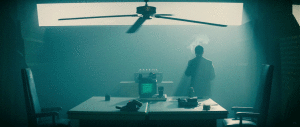 Article 4
Article 4
Public information shall be free and not subjected to censorship.
The direct and indirect discrimination of the media editors, journalists and other persons in the public information area shall be prohibited, especially in accordance with their political orientation and belief or other personal property.
Free flow of information by the media, autonomy of the editor, or the source of information must not be endangered.
Physical offence on the editor, journalist and other persons who participate in collection and publication of information through the media shall be punishable in accordance with the law.
No one may infringe the freedom of public information by the abuse of official and public authority, proprietary or other rights, as well as the influence and control over the resources for printing and distribution of newspaper or the electronic communication networks used for distribution of media content.
gif by http://giphy.com/gifs




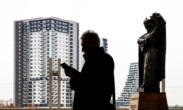
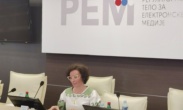

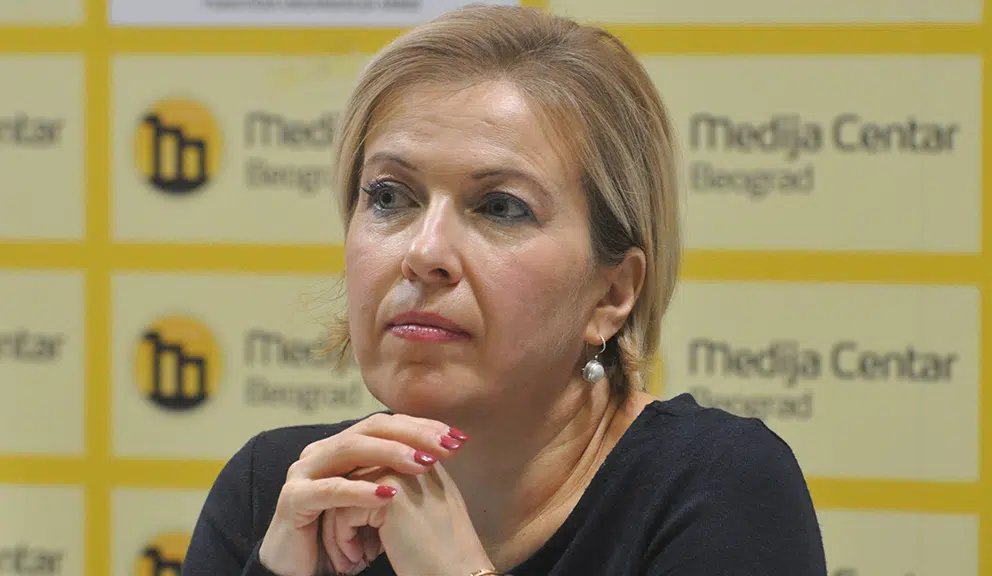 Tatjana Lazarević, Kossev: Udaraju tamo gde je najslabije, u medije koje i kosovska i srpska vlast targetiraju kao vinovnike zla
Tatjana Lazarević, Kossev: Udaraju tamo gde je najslabije, u medije koje i kosovska i srpska vlast targetiraju kao vinovnike zla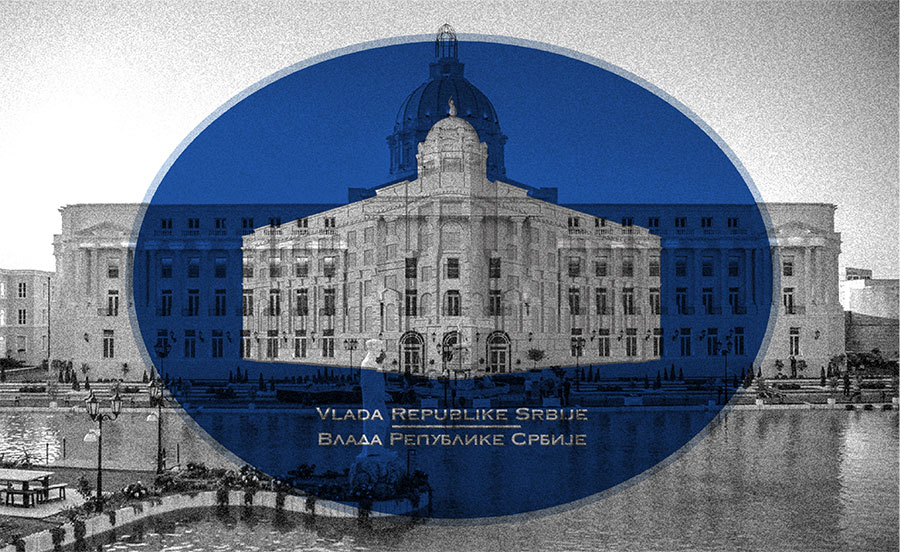 Da li je Vlada Srbije odustala od zahteva za sankcije medijima koji promovišu nasilje i ne vode računa o mentalnom zdravlju mladih?
Da li je Vlada Srbije odustala od zahteva za sankcije medijima koji promovišu nasilje i ne vode računa o mentalnom zdravlju mladih?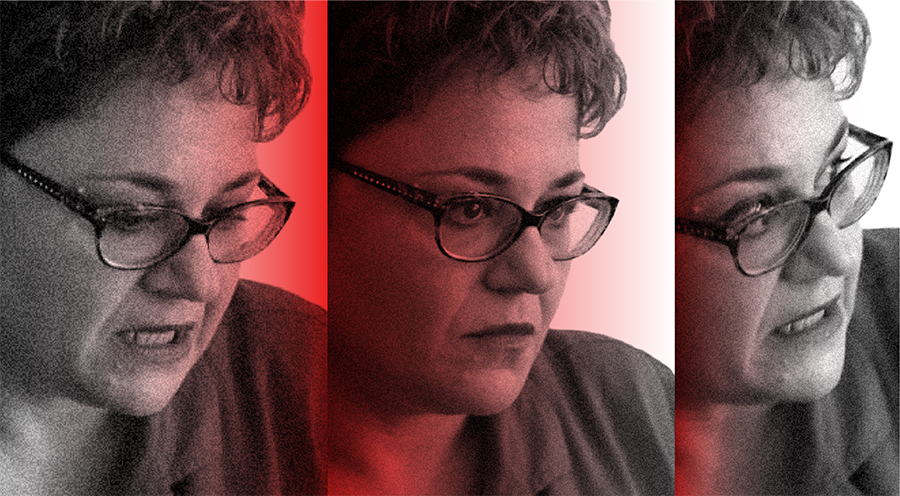 O etici i drugim demonima: Dosta više o Kosti K!
O etici i drugim demonima: Dosta više o Kosti K!
Ostavljanje komentara je privremeno obustavljeno iz tehničkih razloga. Hvala na razumevanju.